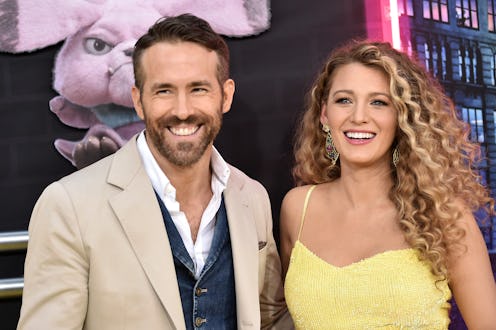Celebrity
Ryan Reynold Says He & Blake Lively Are “Unreservedly Sorry” For Their Plantation Wedding
"It's impossible to reconcile."

In the wake of the racial justice movement renewed by the death of George Floyd, Ryan Reynolds apologized for his plantation wedding with Blake Lively. The two wed in 2012 at Boone Hall Plantation in Charleston, South Carolina, a location fraught with painful history as a site where Black slaves lived and produced bricks and crops. (Pinterest and The Knot have since restricted promotions of plantation weddings.) In an interview with Fast Company on Aug. 4, Reynolds said the decision is one that he and Lively will “always be deeply and unreservedly sorry for" — and that it was "impossible to reconcile."
“What we saw at the time was a wedding venue on Pinterest," Reynolds said. "What we saw after was a place built upon devastating tragedy.” He revealed that the two got married a second time at home — but “shame works in weird ways.” Reynolds continued, “A giant f*cking mistake like that can either cause you to shut down or it can reframe things and move you into action. It doesn’t mean you won’t f*ck up again.” He added that “repatterning and challenging lifelong social conditioning is a job that doesn’t end.”
The interview comes after Reynolds and Lively donated $200,000 to the NAACP Legal Defense and Educational Fund in June and acknowledged their own history of complicity. “We want to educate ourselves about other people’s experiences and talk to our kids about everything, all of it,” Lively wrote on Instagram, in part. “We look back and see so many mistakes which have led us to deeply examine who we are and who we want to become.” She also pledged that she and Reynolds would “stay educated and vote in every local election” — and use their “privilege and platform to be an ally."
Making good on the pledge, Reynolds launched a program called “The Group Effort Initiative” under his production banner Maximum Effort on July 31. A diversity program for Black, indigenous, and other people of color, the program plans to hire 10 to 20 trainees to give them the chance to work and acquire film-industry experience on Reynold’s productions. “I've had a front-row seat to the immense talent of so many artisans, storytellers, and experts," Reynolds told The Hollywood Reporter. "Being a member of a film crew is a special experience — but that privilege hasn't been extended to everyone.” Noting that inclusivity will “make our industry stronger and more dynamic,” he added, “We will tell better stories."